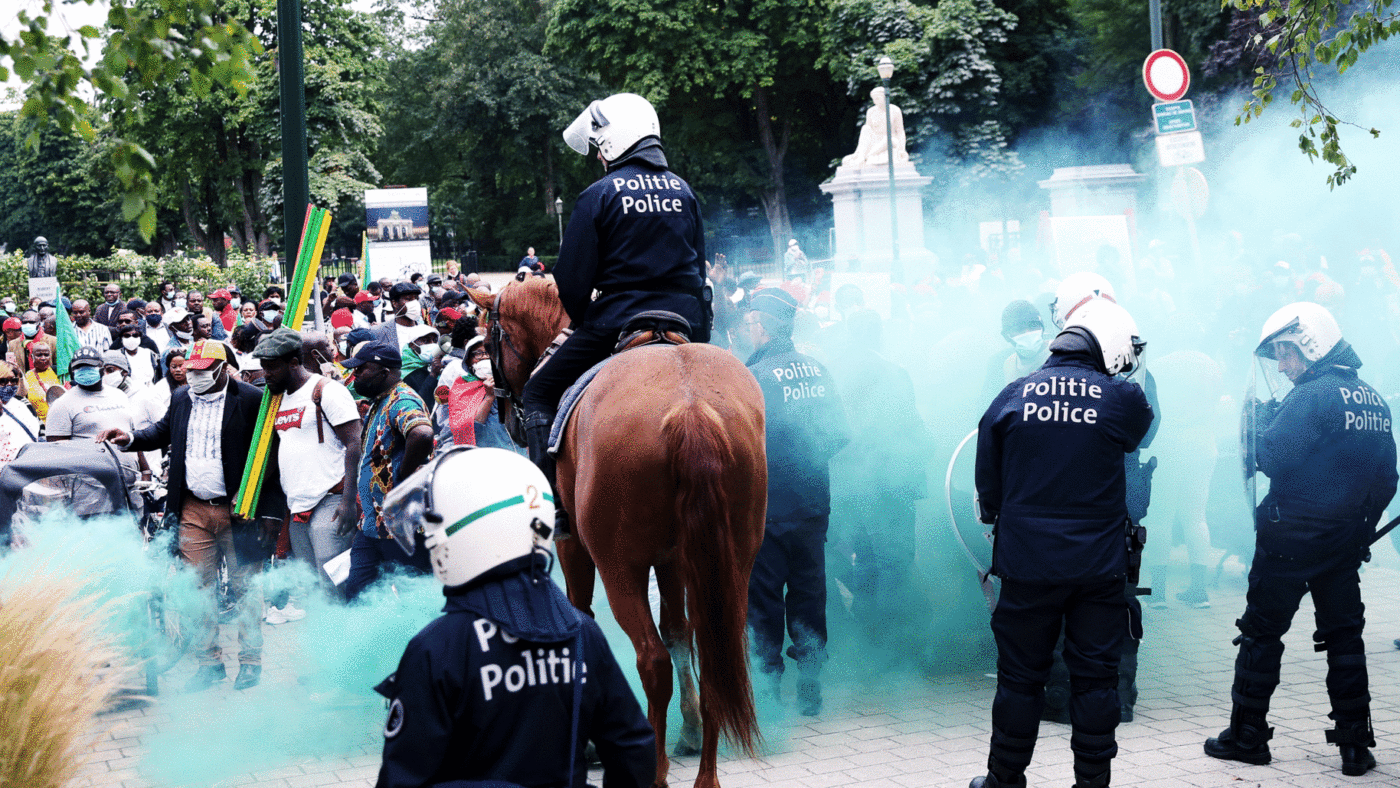The EU has never been quite sure how to balance being an economic partnership with promoting freedom, security and democracy. Now a brewing row over Covid recovery payments to authoritarian regimes in Hungary and Poland is threatening to undo the uneasy compromise.
It started when European leaders concluded a ‘historic’ meeting in July and agreed to a gigantic €1.8 trillion spending bill to revive Europe’s post-Covid economy. It was expected that the money would be funnelled to member states fast, but it looks increasingly likely that these much-needed payments will be delayed. The reason for the hold-up is a dispute over one of the EU’s core principles: the rule of law.
Some member states, along with the European Commission, have said funds should not be released unless a government can demonstrate that it upholds the rule of law. Unsurprisingly, Hungary’s Viktor Orbán saw this as an attack on his administration, and accused Dutch PM Mark Rutte, who was leading the charge on the ‘rule of law mechanism’, of “hating” Hungary. He even accused Rutte of using ‘communist’ tactics.
Eventually, the issue was kicked into the long grass and both sides claimed victory. The ‘rule of law’ advocates got the promise of a mechanism, but for the likes of Orbán and the Polish Law and Justice Party, it was so vague that it was meaningless – whatever mechanism were developed, they could always veto it. Indeed, that is precisely what Hungary and Poland have promised to do, threatening to delay the Recovery Fund and deny other member states their pot of gold.
Rule of Law Report
The situation has been further aggravated by a protracted row over the Commission’s inaugural Rule of Law Report, which rates each member state on measures such as judicial independence, an “active civil soiety” and “a free and pluralistic media”.
Before the report even came out Hungary and Poland had announced they would set up their own rating system. When Hungary and Poland came bottom of the Commission’s rankings, Hungarian Justice Minister Judit Varga responded by calling the report “flawed,” “unbalanced,” and “unfounded”. Hungary’s foreign minister Peter Szijjarto also piled in, complaining that Western European politicians were using his country “as a punchbag”.
The EU side didn’t hold back either, with Justice Commissioner Vera Jourová calling Hungary a “sick democracy”. That in turn prompted Orbán to call for her resignation and declare his intention to “suspend all bilateral contacts” between his government and Jourová.
Increasingly fractious arguments over the rule of law are driving a wedge between EU countries already polarised on topics such as trade and economic policy, as well as the general direction of the European project. It’s not an exaggeration to say these arguments threaten to tear the bloc apart.
None of this is to say, of course, that Rutte and Jourova don’t have a point. Hungary has grown increasingly authoritarian. As Dalibor Rohac has written on this site, Orbán’s government has pursued “the systematic dismantling of checks on political power,” taking his cue from the likes of China, Turkey, and India as role models for a post-liberal future. Free association in the country has been constrained by forcing NGOs and one university out of the country. The media landscape has been consolidated around people close to the government. A new oligarchy of friends of the Prime Minister has been created, often using EU funds.
However, it’s also remarkably easy to level charges of hypocrisy and double standards at EU institutions and fellow member states. How is it, for example, that Boyko Borissov’s government in Bulgaria, which has been subject to months of daily protests by citizens over corruption, receives less censure than Hungary and Poland? Is it perhaps because Borissov’s government is well protected within the center-right European People’s Party – from which Commission President Ursula von der Leyen hails?
Moreover, actually abiding by EU rules has often proven to be more trouble than it’s worth. The rules of the Stability and Growth Pact – which is supposed to limit government spending and public debt – have been ignored by almost every single member state since its inception. In the panic to save Greece during the euro crisis, treaty rules were thrown out like so much ballast; a potentially unconstitutional bond-purchasing program was started by the European Central Bank, which remains ongoing. Time after time the rule of law has been ignored by the EU itself and many governments. Yet, criticism remains reserved for select cases.
Never has this been truer than in the Covid era, when lockdowns have seemingly nullified almost the constitutionally guaranteed rights of citizens across the continent. The rule of law exists so that constraints are put on those in power – and that these constraints stay in place regardless of the circumstances.
As Friedrich Hayek noted in The Road to Serfdom, the rule of law “means, not that everything is regulated by law, but, on the contrary, that the coercive power of the state can be used only in cases defined in advance by the law and in such a way that it can be foreseen how it will be used”. At a time when all freedoms are heavily restrained by almost all governments in Europe, no government really has the moral authority to judge another.
No nation can call itself free unless it upholds the rule of law – but that principle is under threat across the continent. For the EU to have any legitimacy it should call out authoritarianism in all member states – not just those who criticise Brussels.
Click here to subscribe to our daily briefing – the best pieces from CapX and across the web.
CapX depends on the generosity of its readers. If you value what we do, please consider making a donation.


